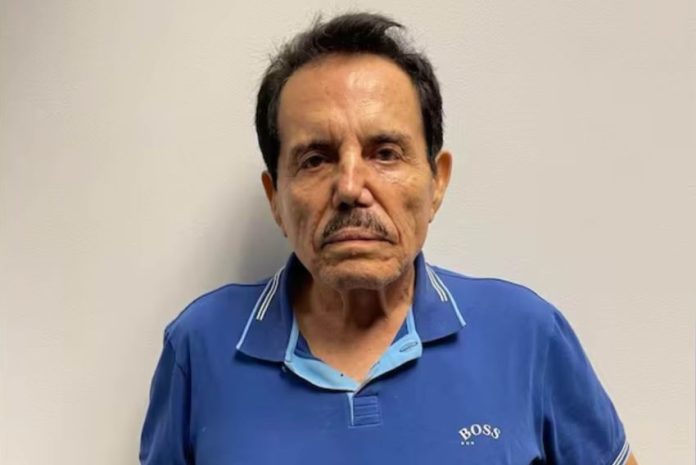Alleged Sinaloa Cartel leader Ismael “El Mayo” Zambada García has sought to set the record straight about the events leading up to his arrest in the United States last month.
He asserts that he was kidnapped and forced onto a U.S.-bound private plane after traveling to Culiacán, Sinaloa with the belief that he was going to help resolve a dispute between the Sinaloa governor and a former mayor of the state capital.
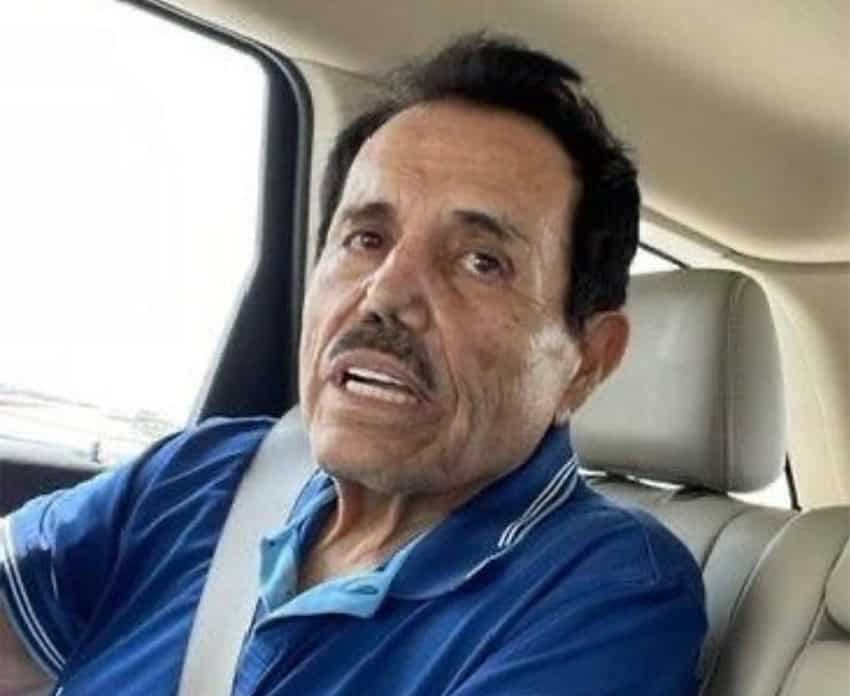
In a statement sent to media outlets by his lawyer Frank Perez, Zambada also claimed that former mayor Héctor Cuen was killed “at the same time, and in the same place, where I was kidnapped” — a version of events that contradicts the official account of the politician’s murder.
The 76-year-old co-founder of the Sinaloa Cartel and Joaquín Guzmán López, a son of convicted drug lord Joaquín “El Chapo” Guzmán Loera, were arrested on July 25 after arriving at a small airport near El Paso, Texas.
Initial reports suggested that Guzmán López tricked Zambada into boarding a U.S.-bound plane by telling him they were going to inspect clandestine airstrips within Mexico.
However, Perez subsequently said that Guzmán López “forcibly kidnapped” his client before he was put on a plane bound for the United States. The lawyer also said that Zambada “neither surrendered nor negotiated any terms with the U.S. government” before he flew into the Doña Ana County airport, located about 25 kilometers northwest of El Paso near Santa Teresa, New Mexico.
United States Ambassador to Mexico Ken Salazar issued a statement on Friday that said that evidence “indicates that El Mayo was taken [to the U.S.] against his will.”
Salazar also said that Guzmán López “voluntarily” turned himself in to United States authorities.
Mi declaración acerca de los hallazgos sobre la custodia de Ismael Zambada García “El Mayo” y Joaquín Guzmán López #SeguridadCompartida
👉 https://t.co/uLrKBQrLRM pic.twitter.com/vMof6OLfGR
— Embajador Ken Salazar (@USAmbMex) August 9, 2024
Both Zambada — who had avoided capture during a decades-long criminal career — and Guzmán López have pleaded not guilty to drug trafficking and other charges they face.
On the day of their arrest, the U.S. Justice Department said in a statement that both men face “multiple charges in the United States for leading the [Sinaloa] Cartel’s criminal operations, including its deadly fentanyl manufacturing and trafficking networks.”
“I was ambushed. A group of men assaulted me”
In his statement, Zambada said there have been “many inaccurate reports” about the events leading up to his arrest, and affirmed that he was providing “the true facts.”
“… I wish to say at the outset that I did not turn myself in, and I did not come voluntarily to the United States. Nor did I have any agreement with either government. To the contrary, I was kidnapped and brought to the U.S. forcibly and against my will,” he said.
Zambada said that Guzmán López asked him to attend a meeting to help resolve a dispute between Sinaloa Governor Rubén Rocha Moya and Cuén over who should head up the Autonomous University of Sinaloa (UAS).
On July 25, Zambada said he went to a ranch and event center just outside Culiacán where the supposed meeting was to take place.
Upon arriving, El Mayo said he saw “a large number of armed men wearing green military uniforms” who he assumed were gunmen for Guzmán López and his brothers, collectively known as “Los Chapitos.”
Zambada said he entered the property with two security personnel: a commander in the State Judicial Police of Sinaloa, José Rosario Heras López and Rodolfo Chaidez, “a long-time member of my security team.”
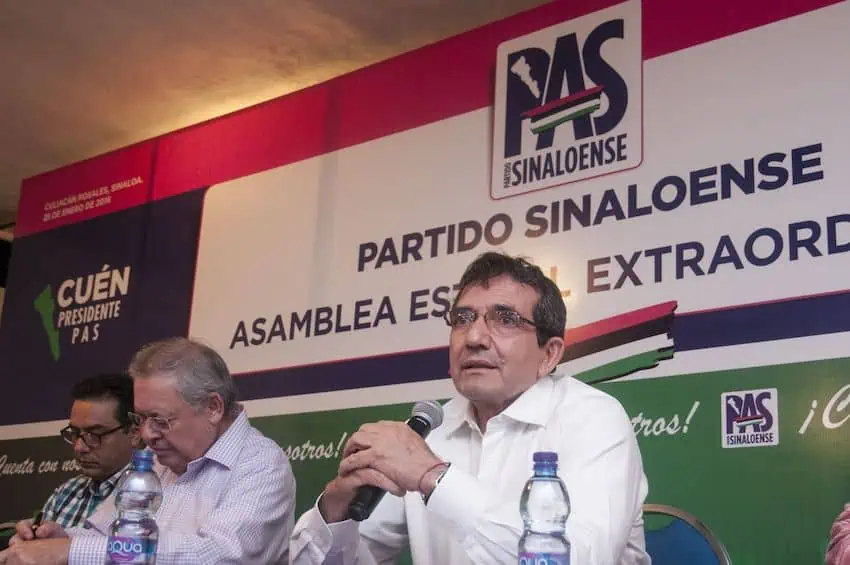
“While walking toward the meeting area, I saw Héctor Cuen and one of his aides. I greeted them briefly before proceeding inside to a room that had a table filled with fruit. I saw Joaquín Guzmán Lopez, whom I have known since he was a young boy, and he gestured for me to follow him. Trusting the nature of the meeting and the people involved, I followed without hesitation. I was led into another room which was dark,” Zambada said.
“As soon as I set foot inside of that room, I was ambushed. A group of men assaulted me, knocked me to the ground, and placed a dark-colored hood over my head.”
Zambada said he was tied up, handcuffed and forced into the bed of a pick-up truck before being driven to a nearby landing strip and “forced” onto a private plane. During the “ordeal,” he said he was “subjected to physical abuse” causing “significant injuries” to his back, knee and wrists.
Once on the plane, Zambada said that Guzmán López removed the hood from his head and used zip ties to bind him to a seat.
He also said that Cuén — mayor of Culiacán between 2011 and 2012, founder of the regionally influential Sinaloa Party and rector of the UAS between 2005 and 2009 — was not shot at a gas station, as Sinaloa authorities have said. Rather, Zambada asserts that he was killed at the property outside Culiacán where he believed he was going to meet with the ex-mayor and Rocha Moya, who denied any knowledge of the meeting allegedly arranged for July 25, and who has said he was in Los Angeles that day.
El Mayo’s claim that was lured to the meeting on the understanding he was to meet with the Sinaloa governor — a representative of Mexico’s ruling Morena party — is not preposterous. Security analyst Chris Dalby told Mexico News Daily earlier this year that “playing ball” with the Sinaloa Cartel is “just part of the game” for municipal and state officials in parts of northern Mexico.
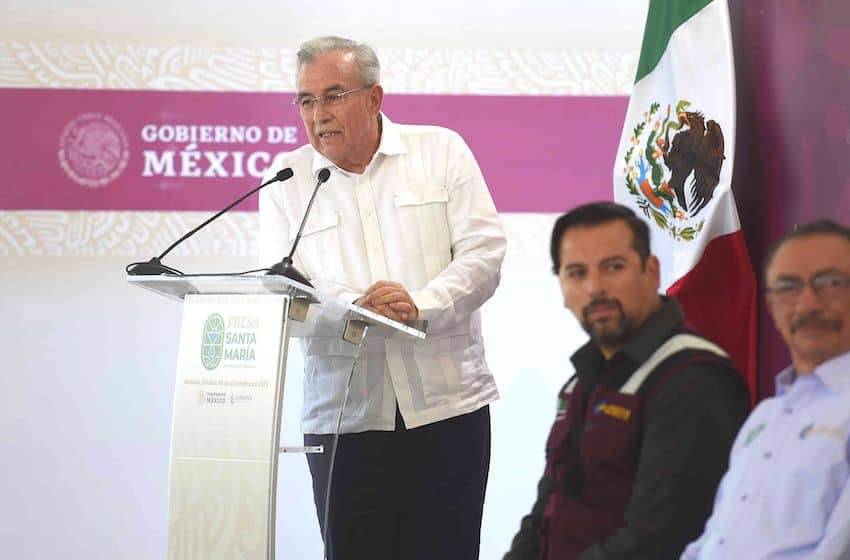
In his statement, Zambada also said that Heras — who was reportedly El Mayo’s security chief in addition to being a police commander — and Chaidez disappeared the same day as his kidnapping and haven’t been seen since. He described Cuén as a “longtime friend” and lamented his death.
“I believe it is important for the truth to come out. This is what occurred, rather than the false stories that are circulating,” he said.
“I call on the governments of Mexico and the United States to be transparent and provide the truth about my abduction to the United States and about the deaths of Héctor Cuen, Rosario Heras, Rodolfo Chaidez and anyone else who may have lost their life that day.”
Zambada also called on “the people of Sinaloa to use restraint and maintain peace in our state.”
“Nothing can be solved by violence. We have been down that road before, and everyone loses,” he said.
Salazar: “It was not our plane, not our pilot”
In his statement, the United States ambassador described the arrests of Zambada and Guzmán López as a “great victory” for both the U.S. and Mexico, asserting that the detentions will disrupt the trafficking of synthetic drugs such as fentanyl.
The U.S. was offering separate multi-million-dollar rewards for information leading to their arrest.
Salazar offered five points about the arrests of the two men.
- Guzmán López surrendered voluntarily.
- The evidence at the time of his arrival to the United States “indicates that El Mayo was taken against his will.”
- No United States resources were used to facilitate Guzmán López’s surrender. “It was not our plane, not out pilot, not our people.”
- No flight plan was presented to United States authorities before the private plane took off. “We understand that the flight began in Sinaloa and landed in Santa Teresa, New Mexico.”
- The pilot is not a United States government employee nor was he hired by the U.S. government or “any U.S. citizen.”
Guzmán López’s lawyer, Jeffrey Lichtman, said in late July that his client hadn’t reached any agreement with U.S. authorities before arriving in the United States.
“We’ve got no agreement with the government. There has never been an agreement with the government with Joaquín Guzmán López. Period,” he said.
FGR investigating El Mayo’s alleged kidnapping
The Federal Attorney General’s Office (FGR) said in a statement on Sunday that immediately after the arrests of Zambada and Guzmán López it opened an investigation into a range of “possible crimes” including the operation of an “illegal flight,” violation of migration and customs laws, kidnapping and treason.
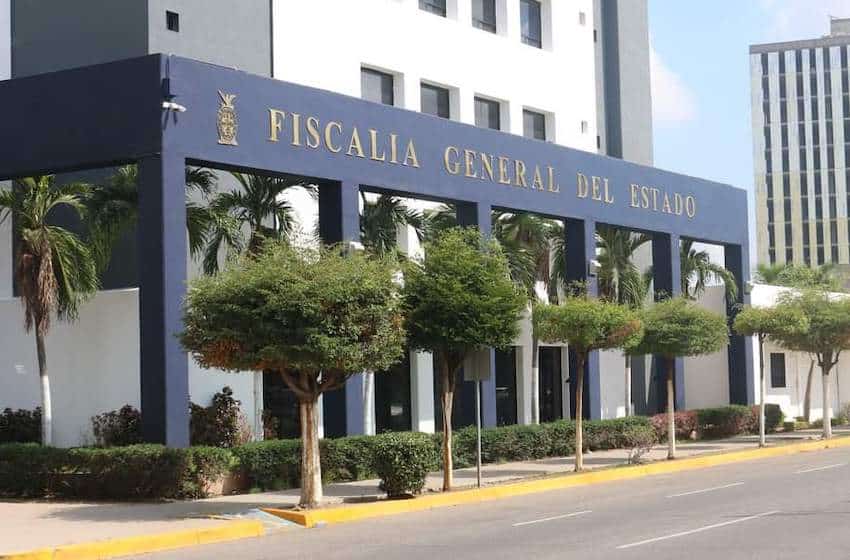
The FGR said it subsequently initiated probes into “other crimes,” including homicide and “illegal deprivation of freedom,” or abduction.
In light of the statements issued by Zambada and Salazar, “specific” investigative tasks were carried out in “the area known as Huertos del Pedregal de Culiacán” and “the aerodrome possibly used in this case,” the FGR said.
Zambada said he was kidnapped at “the ranch and event center called Huertos del Pedregal.”
The FGR also said it has asked the Sinaloa Attorney General’s Office to cede responsibility for the investigation into the murder of Cuén to federal authorities due to its “possible link” to the events leading up to the arrests of Zambada and Guzmán López.
Zambada is currently in prison in El Paso, but is set to be transferred to New York to stand trial in the same Brooklyn courthouse where “El Chapo” Guzmán was convicted in 2019.
Guzmán López is in custody in Chicago, where his brother Ovidio is also imprisoned.
Federal Security Minister Rosa Icela Rodríguez said last week that Joaquín turned himself in to United States authorities after reaching an agreement to surrender with Ovidio, who was captured in Culiacán in early 2023 and extradited to the United States last September.
Mexico News Daily
